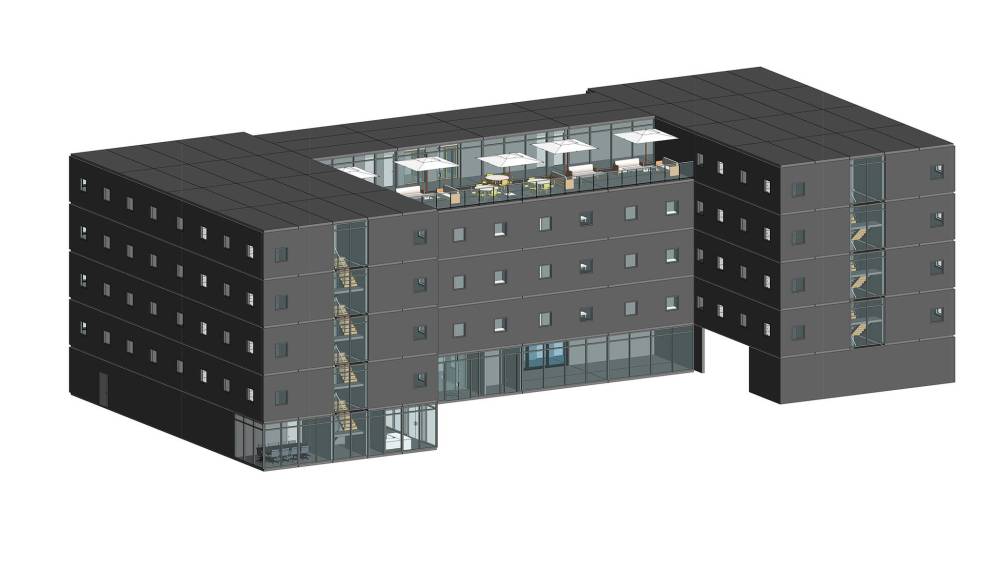Housing first and foremost
Nursing-led initiative aims to offer city’s homeless the dignity and understanding they deserve
Advertisement
Read this article for free:
or
Already have an account? Log in here »
To continue reading, please subscribe:
Monthly Digital Subscription
$19 $0 for the first 4 weeks*
- Enjoy unlimited reading on winnipegfreepress.com
- Read the E-Edition, our digital replica newspaper
- Access News Break, our award-winning app
- Play interactive puzzles
*No charge for four weeks then billed as $19 plus GST every four weeks. Offer only available to new and qualified returning subscribers. Cancel any time.
Read unlimited articles for free today:
or
Already have an account? Log in here »
Hey there, time traveller!
This article was published 04/12/2022 (751 days ago), so information in it may no longer be current.
Ken St. George has dedicated the last 20 years to taking care of people in the community-health sector. Now he will enact the Housing First model in Winnipeg for the first time.
St. George, a long-time nurse who took a stab at civic politics as a candidate in the Charleswood-Tuxedo ward, has shared countless moments with patients in their homes (many of whom are Indigenous), listening to them sorrowfully recollect and launch tirades about the city’s Indigenous population being stuck behind the societal eight-ball with trauma that has led to addiction, and in many cases, homelessness.
“I have a pretty good understanding… of why they’re struggling the way they are,” St. George told the Free Press in an earlier interview.

“… It led me to say, ‘You know what, these people need to be housed properly, in dignity, and they need support by people who truly understand what they’re going through.’”
In 2021, St. George created Albert House, a non-profit with the goal of aiding the city’s homeless. Now he has the blueprint for his first project, a nursing-led housing initiative that could shake up the way support is offered to those searching for stability in Manitoba’s capital.
Albert House, simply named after its organization, is an 84-unit complex to be erected on the south side of Henry Avenue in South Point Douglas, beside Argyle Alternative High School. Each suite will be 310 square feet and the building will be powered by a solar grid. The development will feature a 2,200-square-foot multi-purpose room, often used for traditional Indigenous ceremonies, while 28 units will be fully accessible.
St. George estimates the project will cost about $18 million — a nice bang for his buck when compared to the Village Project, a recent supportive housing initiative by End Homelessness Winnipeg that came in just shy of eight-million dollars for its 22 units. St. George figures to have enough capital to break ground by next fall and is optimistic Albert House will be fully operational by summer of 2024.
The most important part of the impending build, however, is its purpose and the model it will adopt.
Housing First, originally proposed in the late 20th century, was actioned by Dr. Sam Tsemberis, a New York-based clinical psychologist, in 2003. The approach bypasses common housing levels like transitional and emergency shelters with the goal of getting as many people off the street as quickly as possible in to a permanent residence while offering them sustained support to truly recover from whatever trauma, mental health issues or addictions they may suffer from.
The strategy has been implemented across North America and as far away as Finland, with great success.
St. George said Albert House’s approach will closely resemble that of Ambrose Place, a 42-unit recovery centre for Indigenous people struggling with homelessness in Edmonton.
“Is this a Housing First model? Absolutely. But it’s not a model in the traditional sense in which I’m going to consider someone no longer being homeless after being with me for six months, because I think that template needs to be extended,” St. George said.
“We are going to have every single imaginable support in harm reduction and recovery at the same site so they can recover — or at least give them the opportunity to recover — and whether it’s six months or six years, we get them there.”
St. George said a reoccurring problem he’s noticed with housing initiatives is that tenants end up isolated and are not offered enough support.
“Ask anybody on the street who’s their family; it’s the other folks on the street because they’ve lost those connections with family,” he said. “Housing First doesn’t work when you do it in isolation. So I told my partners we’re creating a community here. This is how people heal.”
Jamil Mahmood, executive director of Main Street Project, says the city is in a low-income, transitional housing crisis. More than 700 people are left to scramble for emergency shelter beds on any given night, he explained.
“It’s essential,” Mahmood said of Housing First initiatives. “People need safe places to be in. Until you’re in a safe place, your trauma response is always going to be high, you’re not able to relax and you’re always in a state of emergency.
“We talk a lot about that need for transitional (housing) as a baseline. Transitional should be that first service you get versus a shelter. A shelter is just a cot in a room. It’s not giving you a lot of those opportunities to stabilize your life and have security.”
Mahmood said the City of Winnipeg appears content to invest in emergency services rather than “being proactive and building the housing and giving the right supports.”

“It really needs all levels of government to get on the same page and make that investment. The willingness is there in the community,” he said.
Rick Lees, CEO of Equal Housing Initiative, was quick to point to Canada passing legislation on Article 25 of the Universal Declaration of Human Rights in 2019, which declares everyone has the right to a standard of living adequate for the health and well-being of the individual and of their family.
“Even though we’ve legislated it, we have not enacted that,” Lees said.
A 2019 census reveals there were 1,644 homeless in Winnipeg. Lees claims that number is understated by about 5,000 people. Most of the people who need supportive housing, he explained, live in for-profit facilities or rooming houses, leaving them unaccounted for in the census.
Lees noted that several supports across the city will offer two-year stays for those recovering from addiction, but says they are booted from the program if they relapse.
“How does that make any sense?” he said. “We know for a fact that 90 per cent of people who are going through recovery will relapse at many times on their journey, and the worst thing you can do is push them back out onto the street.”
St. George assures he would re-accept tenants who leave or relapse during their time in Albert House. Aboriginal Health and Wellness will staff the complex, providing tenants with around-the-clock wrap-around support to work through trauma and addiction.
The housing will cost tenants $632 a month, which, according to the Canadian Mortgage and Housing Corporation, is 80 per cent of the median market ratio in South Point Douglas. St. George is confident people can afford their stay through funds such as the Canada-Manitoba Housing Benefit, which offers eligible renters who are homeless or Indigenous upwards of $250 per month.
St. George’s inaugural build will be undertaken with a fresh approach to construction. Albert House will be built exclusively out of shipping containers. Employing Corten steel is a cost-effective approach that will prevent mold, mildew, infestation and fire breakouts. It’s also an optimal build when considering harm reduction.
“The bottom line is the people that we are… going to help will have addiction issues, they’ll have a lot of struggles,” St. George said. “Their safety is first and foremost, in my mind.”
“It’s equitable housing, which should be a human right.”
jfreysam@freepress.mb.ca
Twitter: @jfreysam

Joshua Frey-Sam
Reporter
Joshua Frey-Sam happily welcomes a spirited sports debate any day of the week.
Our newsroom depends on a growing audience of readers to power our journalism. If you are not a paid reader, please consider becoming a subscriber.
Our newsroom depends on its audience of readers to power our journalism. Thank you for your support.
History
Updated on Monday, December 5, 2022 9:29 AM CST: Fixes web headline
Updated on Monday, December 5, 2022 4:46 PM CST: Updates Housing First timeline



